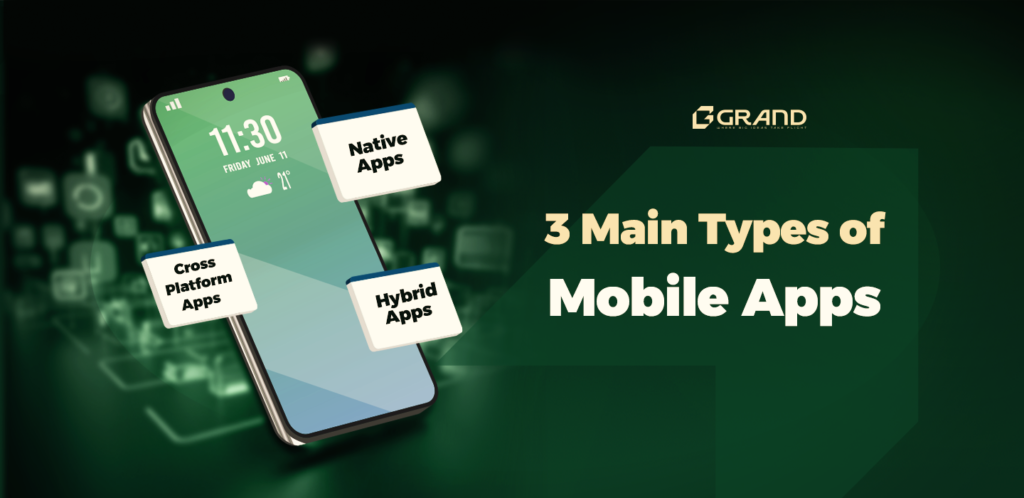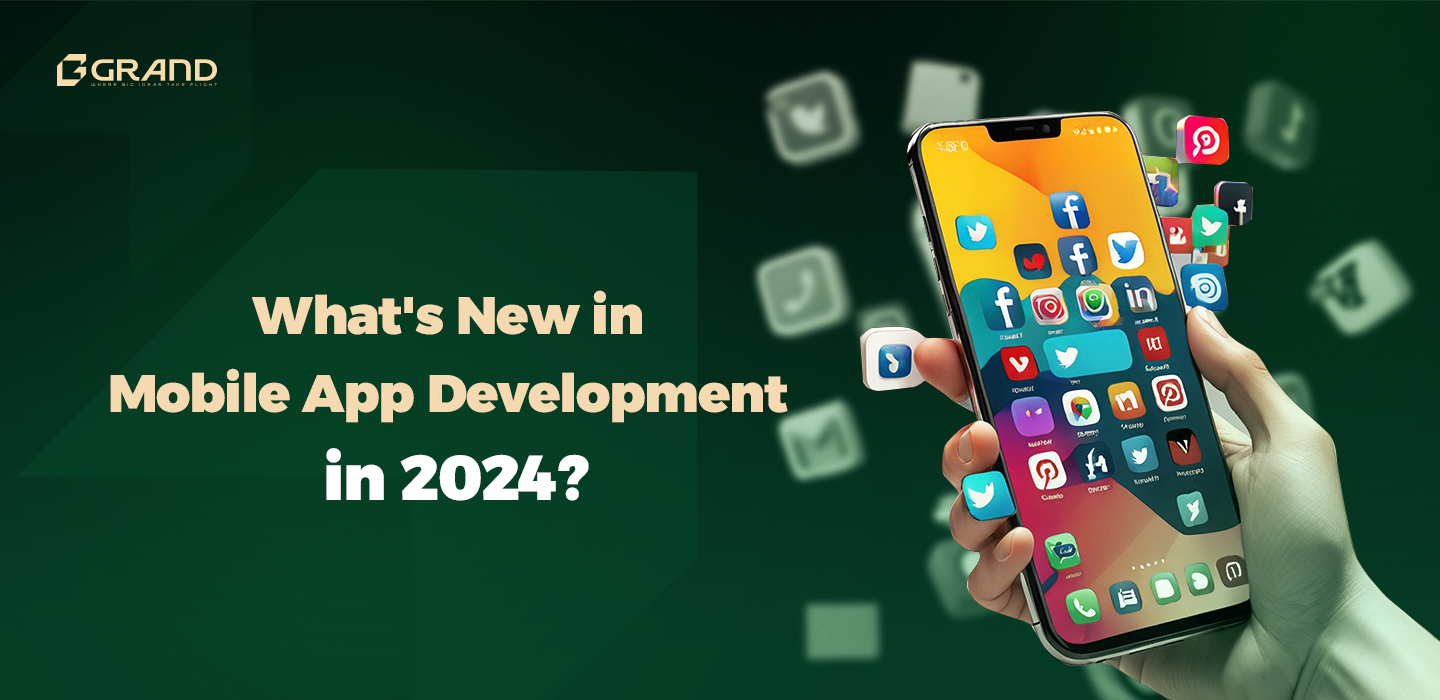What’s New in Mobile App Development in 2024?
Mobile app development has become increasingly crucial in our era, as almost every household owns at least one smartphone, with people spending most of their time using various apps.
As we enter 2024, the integration of artificial intelligence across industries has further heightened the importance of mobile app development.
Now is the time to explore the details and understand all aspects of mobile app development.
What is Mobile App Development?

Mobile app development is a key part of the broader field of software engineering and has become one of the most popular programming types recently.
This field involves various considerations, including:
- Screen size
- Battery life
- Facilitating touch-based interactions
- Ecosystem guidelines imposed by platforms like Google Play and Apple Store
Mobile apps are categorized into Android and iOS applications.
Another classification includes native apps, hybrid apps, and Cross-Platform apps, each serving different purposes and built using different technologies.
3 Main Types of Mobile Apps:

- Native Apps:
These are apps designed specifically for a single operating system, either Android or iOS.
Native apps are developed using platform-specific programming languages
For example: Kotlin for Android and Swift for iOS.
Because of this specialization, native apps offer high performance and are optimized for the respective platforms, but they cannot run on both Android and iOS simultaneously. Each platform requires separate development efforts.
- Hybrid Apps:
Hybrid apps have emerged as a solution for creating applications that run on both Android and iOS platforms simultaneously.
These apps are built using standard web technologies such as JavaScript, CSS, and HTML.
The primary advantage of hybrid apps is that you can develop a single version of the app that works across multiple platforms, significantly reducing both development time and costs compared to native apps.
- Cross-Platform Apps:
Cross-platform apps are quite similar to hybrid apps, as they also run on both Android and iOS using the same codebase. However, they rely on a single technology stack that is compatible with different platforms.
Developers use frameworks like React Native, Xamarin, or Flutter to build these apps. This approach allows for more consistent performance across platforms while still benefiting from shared code, reducing development time and costs.
Steps for Mobile App Development:

- Identify App Requirements by Market Research:
Start by studying the market to understand the needs of your target audience and the requirements for the app. Knowing your user base is crucial in this planning stage.
- Design the User Interface:
With a clear understanding of your users, design the app’s interface focusing on icons, colors, and elements that users will interact with.
- App Development:
Programmers then bring the design to life by coding the app using various programming languages.
- App Testing:
Before launching, test the app to ensure it meets its intended purpose and functions smoothly.
- App Deployment:
There are three ways to publish an app depending on its type:
- Web apps are uploaded to the internet.
- Android apps are published on Google Play.
- iOS apps are submitted to the Apple Store, subject to approval.
With these steps completed, your app is ready to reach its audience, and you can stay updated on the latest trends and technologies in mobile app development, especially as we move into 2024.
New Updates for Mobile Apps in 2024:

AI Integration:
Developers are increasingly integrating AI into mobile apps across various domains.
Examples include Image Recognition, Object Interaction, and Personalized Recommendations
Augmented Reality (AR) and Virtual Reality (VR):
This update offers an inspiring experience in the fields of gaming and entertainment through the integration of AR and VR.
Financial Transactions via Mobile Apps:
The use of mobile apps for financial transactions is expanding daily, with features like digital wallets and money transfers becoming increasingly popular. This growing trend is transforming how people interact with money, making financial services more integrated into everyday life.
Healthcare Apps:
Thanks to advancements in mobile app development, users now have the opportunity to connect with doctors and specialists worldwide through healthcare apps. These apps also include features for fitness tracking, enabling users to monitor their health and wellness from anywhere.
Entertainment Apps:
In recent times, entertainment apps focused on video, music, and gaming have evolved to become an essential part of daily life for many individuals.
Social Media Apps:
While social media apps have been around for a while, they continue to evolve and update. New apps, such as Threads
E-commerce Apps:
Many business owners are now turning to app development to keep up with current trends, which has made it easier for customers to place orders and has significantly increased profits
Educational Apps:
The rise of online education began in 2020 during the COVID-19 crisis, initially through websites. However, educational mobile apps have since become more prevalent and user-friendly, making them a preferred choice for students.
Improvement of Internet and Communication Infrastructure:
The expansion of communication networks to 4G and 5G has significantly enhanced the speed and efficiency of mobile app usage. This improvement allows for faster data transmission, enabling users to access and interact with apps more seamlessly
Now that you know all about mobile app development, what’s stopping you from creating your own app for your business?
Take advantage of GRAND Agency packages and develop your app with us to boost your profits in 2024.
you can read more about :
The Art of Content Marketing: Effective Strategies and Practical Tips






